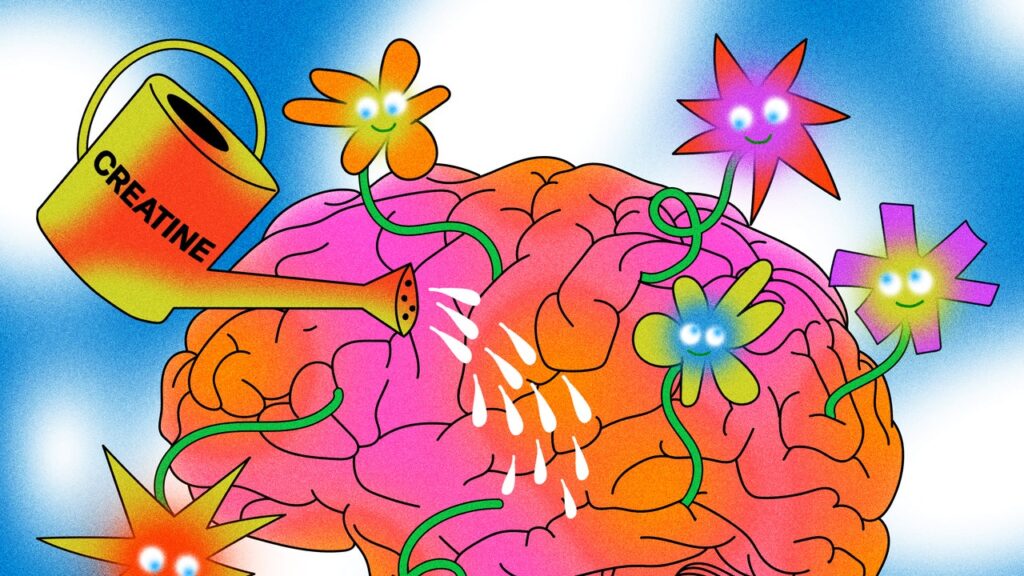[ad_1]
Creatine’s main sales pitch is already strong. The single-ingredient supplement—among the most thoroughly researched in the nutrition category—is scientifically shown to accelerate muscle growth and strength gains in particular, making it a staple in supplement stacks of weekend warriors and elite athletes alike.
Creatine acts at the cellular level, where it is stored as phosphocreatine and spurs production of adenosine triphosphate (ATP)—an energy source used by cells. Most of the creatine that we consume (and produce naturally, albeit slowly) is stored in our muscles. But creatine is stored in other areas of the body as well, such as the brain, where it initiates cellular processes that do much more than build bigger biceps. Years of research show that the knock-on effects of creatine include everything from boosting brain function and warding off cognitive decline to balancing blood sugar and increasing energy levels.
“While creatine is renowned for enhancing physical strength, its cognitive, mitochondrial, and metabolic benefits are equally compelling,” says Gina Nick, NMD, PhD, naturopathic physician and researcher. “As public interest shifts toward supplements that enhance both performance and longevity, creatine stands out as a cost-effective, research-backed option for improving health at a cellular level. Yet, its benefits for brain function, energy, and metabolic support remain under-discussed.”
Here are some of the lesser-known ways creatine can benefit your body, mind, and more.
Increases energy—for longer
Your body uses ATP to do much more than just get you yoked. Often referred to as the “energy currency” of the cell, ATP is utilized as a universal energy source throughout the body. As a precursor to ATP, creatine can help keep all systems firing by combating fatigue and supporting energy metabolism. “If we’re thinking of ways to give us a jolt, other than our morning caffeine or the numerous energy drinks out there, I would recommend creatine probably right up there with them—maybe even higher, just because the risk profile is a lot lower,” says Karan Rai, MD, a sports medicine physician with OSF HealthCare.
Research suggests that creatine can help regulate glucose metabolism, which means steadier, more sustained energy levels throughout the day. “[Creatine] can really help kind of even it out, which in turn overall makes you feel more energized, just because you’re not crashing all the time,” says. Dr. Rai. It’s also particularly useful for those using weight-loss medications, such as GLP-1s, which can deplete energy stores and muscle mass, says Dr. Nick. “Creatine can help counteract these side effects by preserving lean tissue and supporting cellular energy,” she says. (Here are four more things you should do after starting weight-loss drugs.)
[ad_2]
Source link

